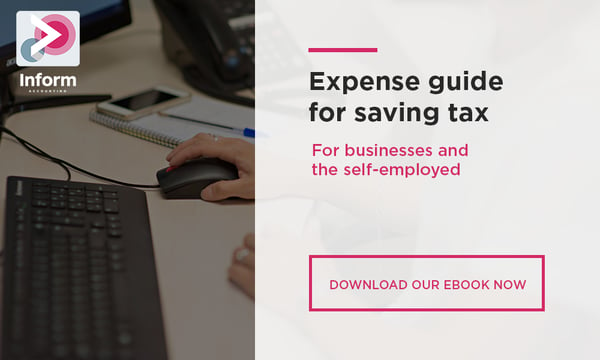BLOG
Run a limited company? Here’s what you need to know about pension contributions…

We all know how important it is to plan for retirement these days - and since the introduction of automatic enrolment, most people in employment are slowly but surely building their nest egg.
At last count (in September 2018), the government’s pensions regulator indicated that 84% of UK staff were successfully enrolled in a workplace pension scheme.
But while workplace pensions make life so simple for full-time workers, things can be less straightforward for the self-employed.
Paying into a private pension without the luxury of a regular salary can be a real challenge - particularly if you’re operating your own limited company, and withdrawing funds by means of dividends rather than salary.
The good news is that if you have a limited company, paying into your pension can actually bring some significant tax advantages.
In this blog, we’ll look at some of the basic rules and regulations around pension contributions from your limited company, and identify how you can save for the future in the most tax efficient manner.
Two options that could work for you…
If you run a limited company, there’s effectively two ways in which you can contribute to your pension. You can make personal contributions using the money you take out of the business, or you can contribute pre-taxed company income through the business itself.
Both of these options offer their own pros, cons and tax connotations - so what’s right for you will depend on your exact circumstances. Let’s take a look at the options more closely.
Option one: personal pension contributions
When your make pension contributions from your personal income, you receive tax relief. That rate of tax relief reflects the rate of income tax you pay.
So, if you pay the standard income tax rate of 20%, your pension contribution of £100 would become £125 (your £100 plus 20% tax relief). If you’re a higher rate earner, your £100 pension contribution translates to £166.67.
You can save as much money as you like into your pension each year, but there is a limit as to how much of that money you can receive tax relief on.
That limit is 100% of your annual income (up to a maximum of £40,000).
As the director of a limited company, this is important, because many business owners choose to pay themselves via dividend instead of salary - and dividends don’t count towards your eligible income.
So, if dividends make up half your annual earnings, your tax relief limit is effectively cut in half.
Let’s say you pay yourself a salary of £20,000 and take an annual dividend of the same amount. Only the salary earnings count towards your tax relief limit, so you’ll only gain tax relief on the first £20,000 you contribute to your pension that year.
You can pay in as much of the dividend as you wish - but you won’t get any tax relief on it.
To save into your pension more tax efficiently, it may therefore be better to reduce your reliance on dividends, and take home a higher salary instead. However, this does have other implications, such as increasing your liability for NI contributions.
The other option to investigate is paying into your pension directly from your company.
Option two: employer pension contributions
Contributing to your pension via your limited company can often be more tax efficient, as employer pension contributions are considered an allowable business expense.
That means the value of your contributions across the year can be offset against your company’s corporation tax bill.
Effectively, you’re paying the money straight into your pension as opposed to paying it to yourself as salary, so you wouldn’t pay National Insurance on the payments either.
So far, so good. But it’s important to note that in order to pay into your pension this way, your contributions will have to meet HMRC’s rules for allowable deductions.
Among these rules is the stipulation that the pension contributions must be exclusively for business purposes, so HMRC will look for evidence to the contrary - looking, for example, to see if your fellow employees are being treated in similar fashion when it comes to their remuneration.
Of course, if you’re the sole director of your own business, this line of enquiry isn’t possible.
Not sure of the best way forward? We can help.
Whether it’s best to save into your pension via personal or employer contributions will depend on your own unique circumstances.
So if you own a limited company and you want to save for the future in the most tax efficient way, why not give us a call and talk it through with our experts.
You can reach us at 0121 667 3882 or hello@informaccounting.co.uk
Read more of Inform's tax blogs:
Open Banking- a positive change for the banking industry
How will a 'No Deal' Brexit affect EU trading?
VAT rules are changing for builders- but good news, there's a delay until 1 October 2020!
Selling into America? Here’s what you need to know about ‘Sales Tax Nexus’…




.jpg?width=1500&height=1000&name=amy-hirschi-K0c8ko3e6AA-unsplash-(5).jpg)

